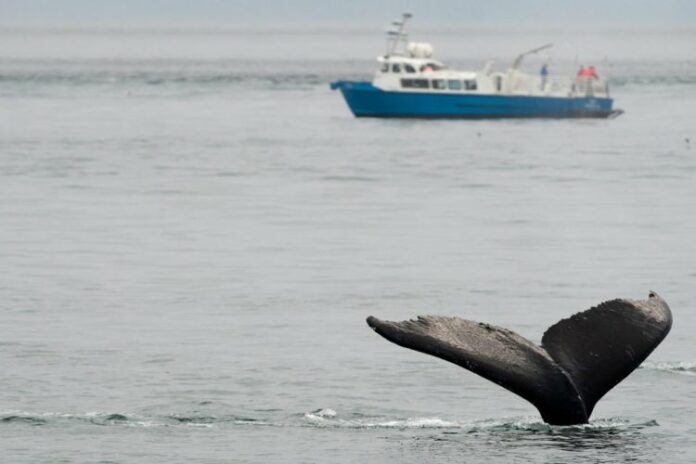The administration of U.S. President Joe Biden has issued a USD 10 million (EUR 9.1 million) contract to the Center for Enterprise Modernization to develop technologies that can help protect endangered North Atlantic right whales.
“NOAA and its partners are working to stabilize the North Atlantic right whale population and prevent extinction of this species,” U.S. Secretary of Commerce Gina Raimondo said.
The Center for Enterprise Modernization is run by the nonprofit MITRE, an organization that operates several federally funded research and development centers. Under the contract, the center will work on developing technologies related to whale detection, vessel strike avoidance, and ropeless fishing gear.
The contract was funded through the USD 82 million (EUR 75 million) the federal government dedicated to right whale recovery efforts in the Inflation Reduction Act, which the administration announced in September 2023.
The contract follows the Massachusetts Department of Fish and Game’s Division of Marine Fisheries (DMF) 29 December 2023 announcement that it will receive more than USD 4.6 million (EUR 4.2 million) from Congress for its right whale conservation program.
The department will use the funding and a USD 475,000 (EUR 434,000) grant from the National Fish and Wildlife Foundation to develop “innovative fishing gear technologies, increase ongoing research and monitoring, and provide fishing gear to lobster industry participants to reduce harm to right whales.”
“We have a special responsibility to help these endangered animals and to promote innovative measures to support whale recovery and Massachusetts’ important lobster industry,” Massachusetts Energy and Environmental Affairs Secretary Rebecca Tepper said. “Massachusetts near-shore waters annually host up to 80 percent of the total population of North Atlantic right whales in late winter and early spring, as the whales migrate north and feed in the nutrient-rich waters of Cape Cod Bay and Massachusetts Bay. These funds are particularly beneficial to the small boat fishers who contribute so much to our economy, food security, and heritage of Massachusetts coastal communities.”
The state expects to receive more than USD 23 million (EUR 21 million) from NOAA Fisheries for the five-year program.
With only about 360 individual North Atlantic right whales left, conservationists and the U.S. government have prioritized implementing protections that can help the species survive. NOAA Fisheries declared an “Unusual Mortality Event” was affecting the species in 2017, primarily placing blame on vessel strikes and fishing gear entanglements.
A collection of seafood processors working together with retailers and fishery organizations has announced a new fishery improvement project (FIP) designed to reduce right whale entanglements in the U.S. and Canadian lobster fisheries.
“Our retail and foodservice clients are committed to supporting the North American lobster industry but expressed concern that the fishery addresses whale entanglement risk,” New Bedford, Massaschussetts, U.S.A.-based Northern Wind Chairman and Founder Ken Melanson said. “This fishery improvement project will give participants in the lobster fishery the information they need to avoid setting traps in areas where whales are known to be or are expected to be.”
FIP participants reviewed whale migration patterns, fishing locations, and harvest times to better understand how to implement strong avoidance measures while minimizing impacts on commercial fishing operations. Companies are also working to pair electronic traceability systems with whale tracking data to help them reduce entanglement risks.
“This puts our industry ahead of the curve to maintain lobster harvesting while addressing entanglement concerns,” Melanson said.
The FIP was developed by the Fishery Impact Fund and approved by Fishery Progress. The three-year project received initial funding from Northern Wind, Legit Fish, and the Massachusetts Division of Marine Fisheries.



